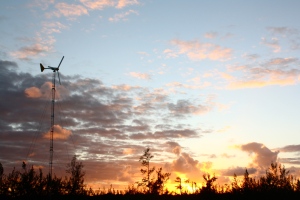The first week of research was a big week for the Lionfish research project. We oriented ourselves to our goals, methods, and systems. We discussed what an invasive species means, the invasion of lionfish, their life cycles, and their anatomy. On Thursday, we dissected lionfish in the lab. Our project began with learning external anatomy, including how to prevent lionfish stings. Next cut their bellies and look into the internal anatomy. We saw their key organs, and even their super stretch stomach that makes them such a successful predator. I found it especially interesting when we opened their stomach; we identified their stomach contents. This is especially significant because we identified their stomach contents to determine which species were suffering due to lionfish predation. I really enjoyed our dissection. The following week was our first field day. We went diving on a reef and practiced protocol for surveying a particular reef. The group was really excited to begin their work and get in the water. Stay tuned for new updates from the Lionfish research project!
[slideshow]

